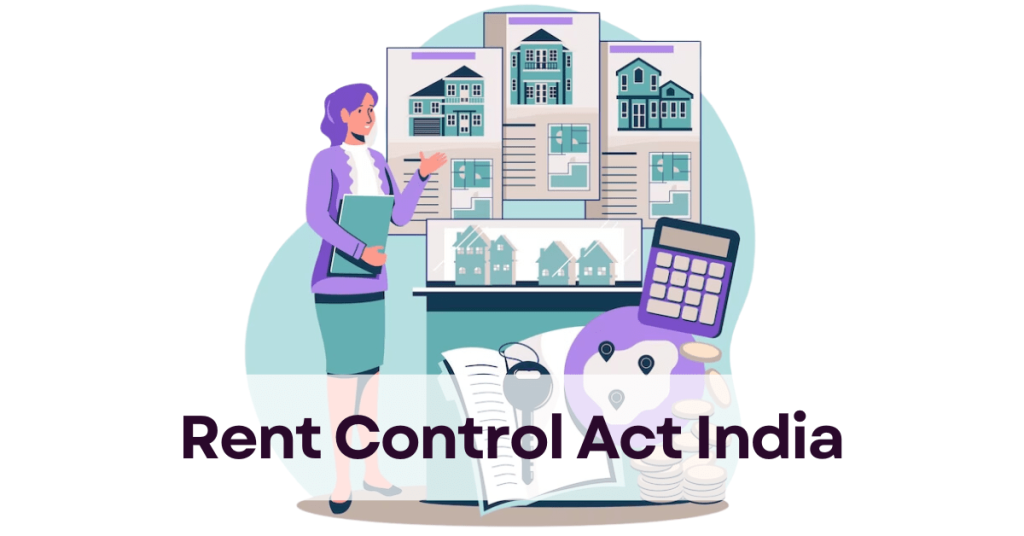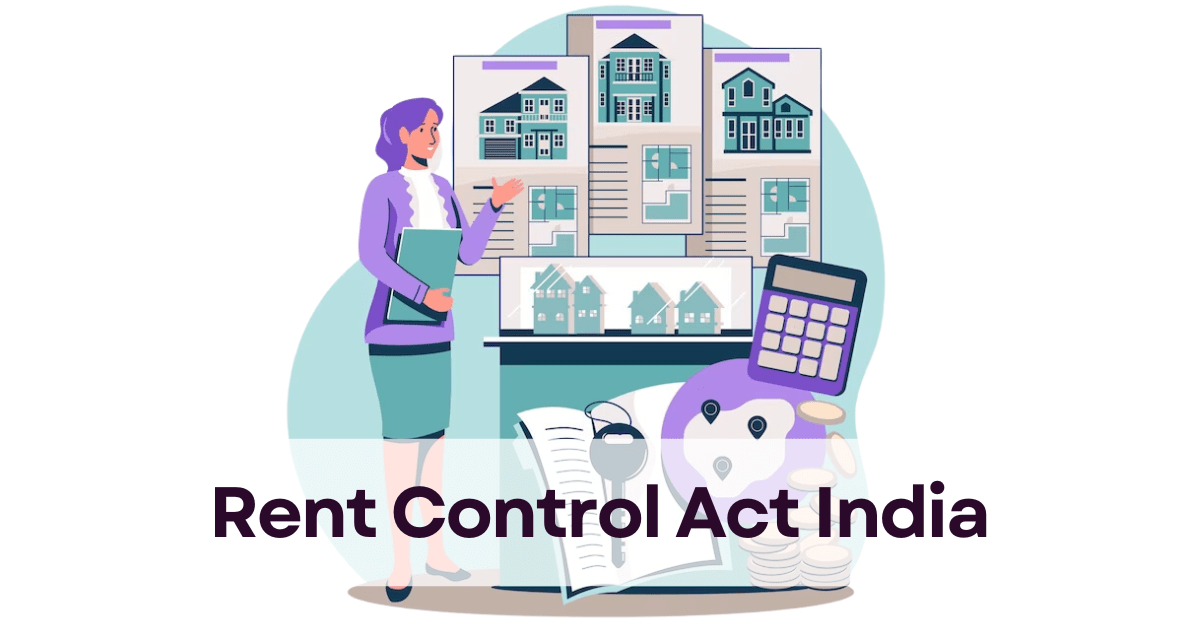
Table Of Content
- When was the Rent Control Act introduced in India?
- What are the features of the Rent Control Act?
- When is the Rent Control Act applicable?
- What are the Rights of Landlord and Tenant under Rent Control Act?
- Is there any exemption from the Rent Control Act?
- Is the rent fixed under the Rent Control Act?
- Can another municipal act have power to recover rentals?
- Are rental issues addressed by the Consumer Protection Act?
- What Act should be taken in Rental?
- What happens if a tenant does not leave?
- Conclusion
- Frequently Asked Questions
To regulate rental markets and protect tenants from arbitrary evictions and excessive rent hikes was the goal of Rent Control Act which is introduced in India in 1948 having such features that include regulation of rents, maintenance requirements and tenant protection. However, it ensures justice within residential leases though it does not apply to commercial properties or building up new houses.
When was the Rent Control Act introduced in India?
The Rent Control Act in India was Introduced in 1948. The primary purpose of the Act was to regularize the rental market and protect tenants from arbitrary evictions as well as high rent increases. After its introduction, various states within India have made their own versions or amendments to the Rent Control Act to cater for local conditions and needs.
What are the features of the Rent Control Act?
Features of The Rent Control Act include:
- Rent Regulation: Limits on rent increases and ensures equitable rents.
- Tenant Protection: No undue eviction; tenure security is ensured
- Rent Deposit: Landlords must deposit collected rent with authorities under certain circumstances.
- Dispute Resolution: Provides ways through which landlords and tenants can solve their problems.
- Maintenance: It’s a requirement that landlords maintain properties in a good status.
When is the Rent Control Act applicable?
The Rent Control Act is relevant in such instances:
- Urban Areas: Mostly in cities and towns where there is regulated rental housing with supply- demand balancing initiatives
- Residential Properties: This applies to residential buildings, not commercial ones.
- Tenancy Agreements: It covers existing leases and tenancy contracts against arbitrary increase in rents by landlords or eviction.
- Disputes: This applies during lawsuits between landlords and tenants on matters concerning rent payment as well as eviction issues.
What are the Rights of Landlord and Tenant under Rent Control Act?
In accordance with the provisions of the Rent Control Act, landlords are entitled to rent payment as per agreement that was entered into between the tenants and themselves, maintaining a property, seeking eviction for specific clauses like non-payment or reasons of property need and raising rents within specified statutory limits. On their part, tenants have the right to security of tenure against arbitrary eviction, fair rent regulated by the Act, well maintained and habitable accommodation, and privacy for quiet enjoyment. The rights aim at striking a balance between the interests of both parties, thus ensuring fairness in rental agreements and dispute resolution.
Is there any exemption from the Rent Control Act?
Yes, there are certain exemptions from the Rent Control Act in India. These exemptions include:
- Commercial Properties: This means that most Rent Control Acts are only applicable to residential properties excluding commercial leases.
- New Constructions: Some Acts allow landlords to set rents freely on properties built after a certain date.
- Tenancy Duration: There may be an escape route for short-term leases including those not covered by this legislation.
- Government Properties: Government-owned properties as well as some public housing may be exempted.
- Certain Categories: Some rentals being occupied by people from military personnel or government officials may not fall under coverage.
Is the rent fixed under the Rent Control Act?
The rent is not Fixed under the Rent Control Act. Instead, it controls it to avert arbitrary rise of prices. Rental control Act is responsible for the setting of ranges within which rent can be increased and provides ways through which rents should be reasonable basing on among others condition of the premises and market rates thereby protecting tenants from excessive rentals charges.
Can another municipal act have power to recover rentals?
Yes, another municipal act can have the power to recover rentals. Municipalities may enact specific regulations or bylaws to manage rental collections, enforce payment, and address disputes. These local acts can complement or override provisions in broader laws like the Rent Control Act, focusing on the recovery of rents, especially for municipal properties or local housing schemes.
Are rental issues addressed by the Consumer Protection Act?
Yes, rental issues can be addressed by the Consumer Protection Act when disputes involve unfair trade practices or service deficiencies related to rented properties. The Act provides a forum for consumers to seek redress for grievances, including unfair terms or inadequate services from landlords or rental agencies.
What Act should be taken in Rental?
In rental matters, several acts and regulations can be considered:
- Rent Restriction Act: It deals with rules on rent control, tenant protection measures and eviction process.
- Consumer Rights Act: The law is applicable in cases where claims about unfair terms or unsatisfactory services are made based on the tenancy agreements.
- Property Legislations: They include laws concerning property ownership, leasing as well as management.
What happens if a tenant does not leave?
They may contain specific provisions for rental properties and disputes. If a tenant does not move out after receiving a valid eviction notice, the landlord can sue for eviction in court. When the case is reviewed by the judge and it is ruled in Favour of the landlord, then he/she shall be issued with an eviction order. Thereafter, local authorities could be engaged by landlords to enforce this order thus evicting tenants from their premises.
Conclusion
The Rent Control Act of 1948 was designed to regulate rental markets, ensuring fair rent and tenant protection. It provides mechanisms for resolving disputes, maintaining property standards, and protecting tenants from arbitrary evictions. Although it primarily applies to residential leases and excludes commercial properties, exemptions and supplementary municipal regulations can influence its application. In cases where tenants refuse to vacate, legal procedures enable landlords to seek eviction through the courts. Overall, these regulations aim to balance the interests of both landlords and tenants.
Frequently Asked Questions (FAQs)
It is said under the act that A local consumer court has ruled that a person, who had taken an apartment on lease to reside for 11 months, is not defined as a consumer and cannot get protection under the Consumer Protection Act 1986.
Yes, a standard amount of rent is fixed under the Rent Control Act. Since the Rent Control Act was brought into action by the government of India to curb the increasing cases against landlords and tenants of disputes and fixed the rent under the act.


